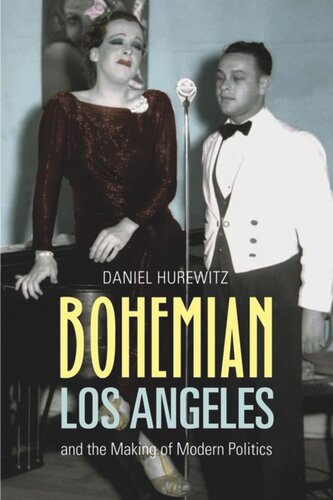

Most ebook files are in PDF format, so you can easily read them using various software such as Foxit Reader or directly on the Google Chrome browser.
Some ebook files are released by publishers in other formats such as .awz, .mobi, .epub, .fb2, etc. You may need to install specific software to read these formats on mobile/PC, such as Calibre.
Please read the tutorial at this link: https://ebookbell.com/faq
We offer FREE conversion to the popular formats you request; however, this may take some time. Therefore, right after payment, please email us, and we will try to provide the service as quickly as possible.
For some exceptional file formats or broken links (if any), please refrain from opening any disputes. Instead, email us first, and we will try to assist within a maximum of 6 hours.
EbookBell Team

4.0
36 reviewsBohemian Los Angeles brings to life a vibrant and all-but forgotten milieu of artists, leftists, and gay men and women whose story played out over the first half of the twentieth century and continues to shape the entire American landscape. It is the story of a hidden corner of Los Angeles, where the personal first became the political, where the nation’s first enduring gay rights movement emerged, and where the broad spectrum of what we now think of as identity politics was born. Portraying life over a period of more than forty years in the hilly enclave of Edendale, near downtown Los Angeles, Daniel Hurewitz considers the work of painters and printmakers, looks inside the Communist Party’s intimate cultural scene, and examines the social world of gay men. In this vividly written narrative, he discovers why and how these communities, inspiring both one another and the city as a whole, transformed American notions of political identity with their ideas about self-expression, political engagement, and race relations. Bohemian Los Angeles, incorporating fascinating oral histories, personal letters, police records, and rare photographs, shifts our focus from gay and bohemian New York to the west coast with significant implications for twentieth-century U.S. history and politics.